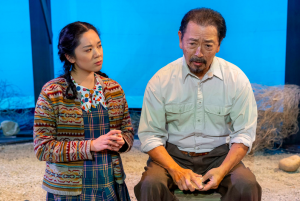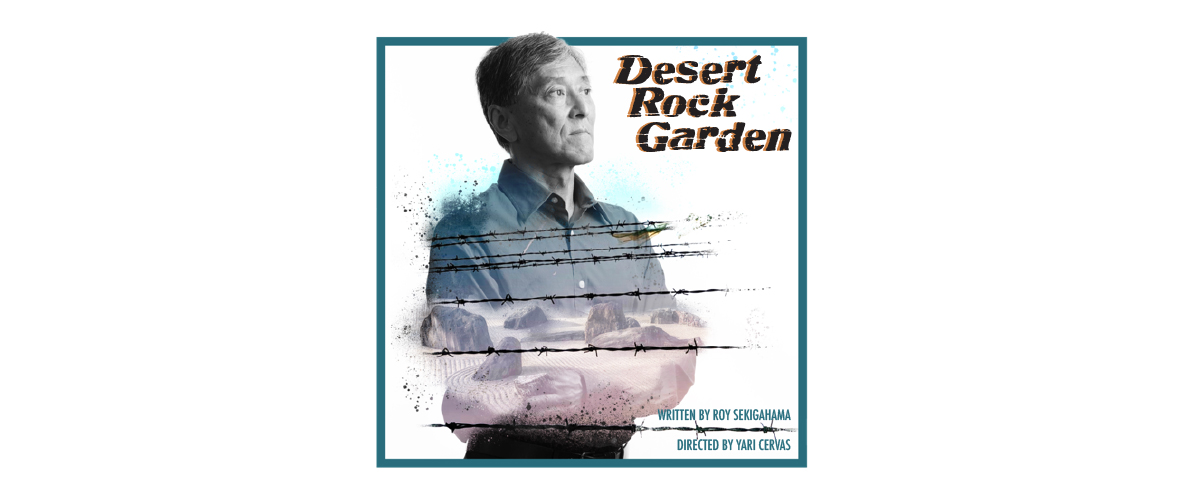I believe I was in my final years of high school or perhaps even early years of college when I first learned of the Japanese internment camps. What horrified me most of all was one thought, “How could Americans, who had just witnessed the inhumanity of the Nazi Holocaust, treat any group with such animosity and injustice?”
Then I began reading books about this dark and sickening period. Jeanne Wakatsuki Houston’s memoir, Farewell to Manzanar, David Guterson’s Snow Falling on Cedars, and especially Jamie Ford’s Hotel on the Corner of Bitter and Sweet confounded me, and disabused me of the notion that America always swoops in as the White Knight. In Desert Rock Garden, New Village Arts proudly delivers a world premiere that provides a Japanese perspective of this horrifying episode as written by Roy Sekigahama.
I think it is worth noting that Sekigahama is relatively new to playwriting, but it does not show! He joined a playwriting workshop in 2016 and since that time has consistently won prizes for his short plays and full-length plays. Interestingly, the author has written two Jewish-themed plays for which he has placed in the top 5 in the San Diego Center for Jewish Culture’s 5-Minute Play Festival.

The director, Yari Cervas, and both actors, Chloris Li, and Lane Nishikawa, made their debuts at New Village Arts, but if this show is any indication of their abilities, they will all be returning. This compelling show encompasses virtually every human emotion on the spectrum. Set in a Japanese internment camp, we are drawn into the unlikely relationship between a young orphaned girl who has been uprooted a few times, and an Issei man (an immigrant) who is cynical about life. His outlook, somewhat jaded about people, causes him to show his resiliency and leave a legacy in his rock garden. Fuzzy (Nishhikawa) and Penny (Li) forge a bond that is palpable and authentic. While Penny appears a bit brazen and flippant, Fuzzy coaches her in curbing her inappropriate behaviors. The older man mentors her about working harder in school and respecting her teachers, as she teaches him to read English. Her rebellious nature endangers her safety in the camp, so Fuzzy encourages her to become a foster child of a couple who is leaving the camp and headed to a true home. Penny heeds his advice and inadvertently causes his demise.
Sekigahama fictionalized the actual story of James Hatsuaki Wakasa in the writing of this powerful play. In an effort to let you experience the story and its impact for yourself, I will not reveal more. I only want to impart that the Topaz incarceration camp in Utah was not one of a kind. To my disgrace and horror as an American, Topaz was but one of several camps that not only marginalized Asians and Asian Americans but never bestowed honor or gratitude for the vast numbers of these people who served with our troops. Due to a xenophobic aura, those who gave their time, energy, and lives, were locked up instead of being decorated.


























